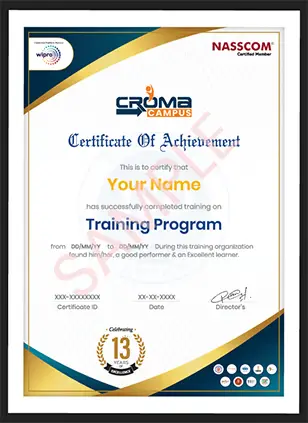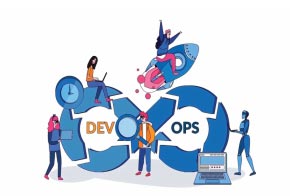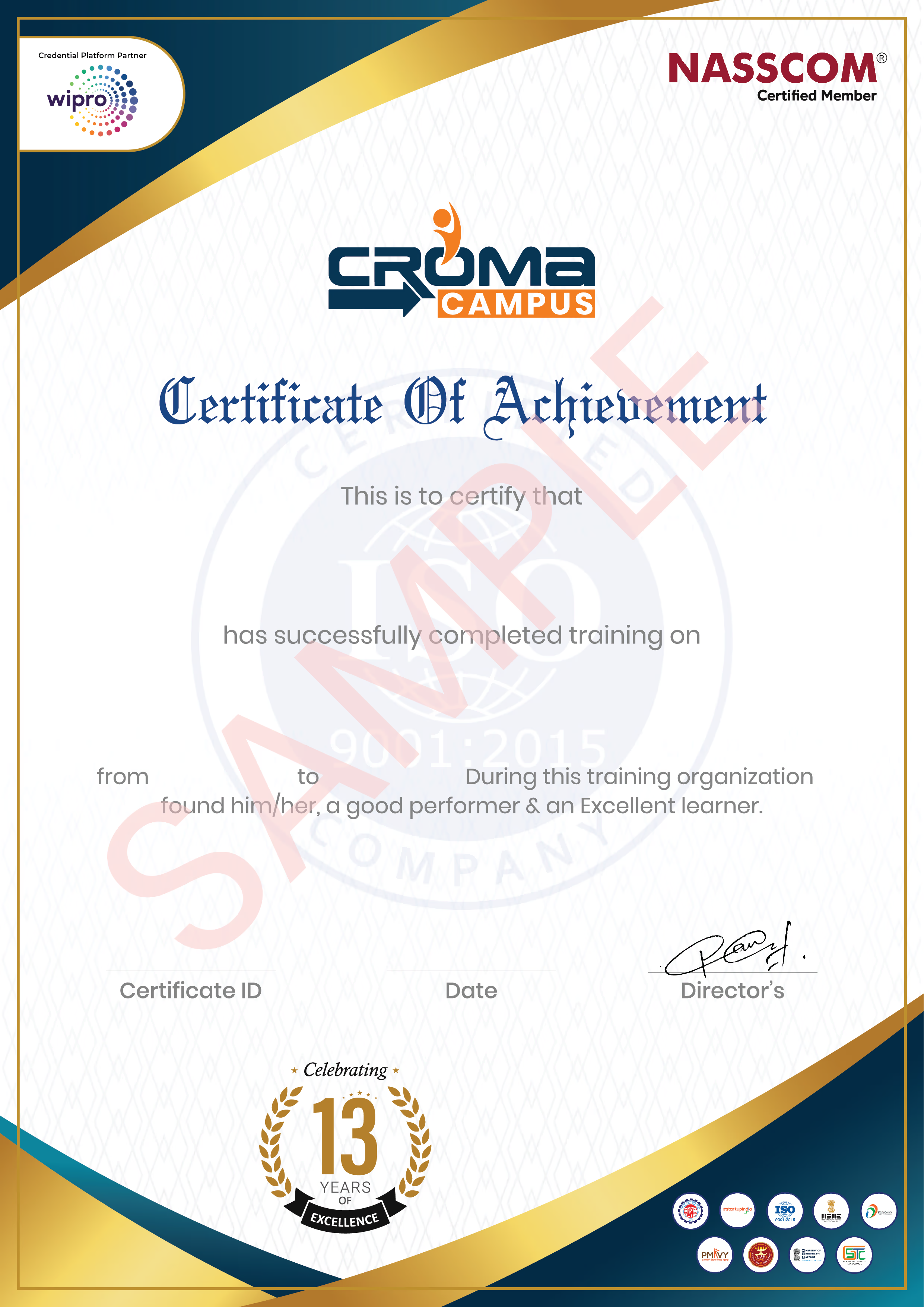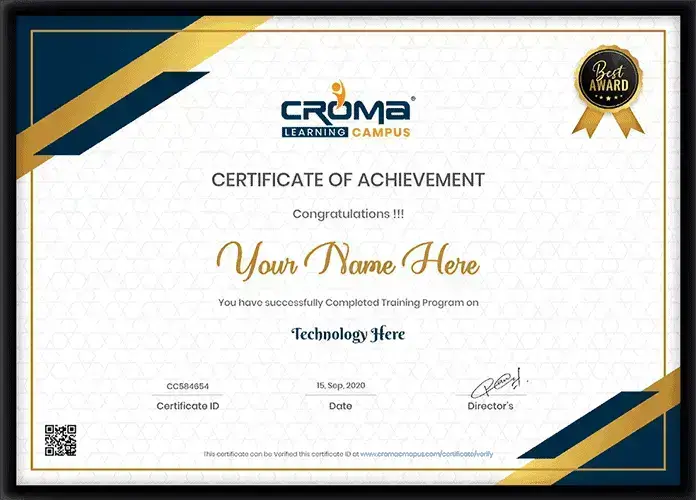- The Ansible Certification Course is designed to teach IT professionals how to automate and manage complex infrastructure tasks. Ansible is a popular tool in DevOps that helps with automation, configuration management, and application deployment. The course provides practical experience with automating system tasks, managing servers, and integrating applications. By the end of the course, learners will be proficient in creating Ansible playbooks, using inventories, and streamlining the management of servers. Its ideal for anyone interested in enhancing their skills in IT automation, improving workflow efficiency, and reducing human errors in system administration.
- The primary goals of the Ansible Certification Training are to teach students:
How to automate IT tasks and configuration management.
The basics of Ansible architecture, including playbooks, inventories, and roles.
How to manage infrastructure effectively in both small and large-scale environments.
The use of Ansible for continuous integration and continuous delivery (CI/CD) pipelines.
Troubleshooting Ansible configurations and optimizing automation processes.
Implementing Ansible in cloud environments and understanding how it integrates with services like AWS and Azure.
Prepare for the Red Hat Certified Specialist in Ansible Automation exam.
- After completing the Ansible Certification Training, freshers can expect to earn a competitive salary in the range of 6,00,000 to 9,00,000 per year in India.
Competitive Salary Range: Freshers can expect to earn between 6,00,000 to 9,00,000 annually in India.
DevOps and System Admin Roles: Entry-level positions like DevOps Engineer or System Administrator offer salaries in this range.
Factors Affecting Salary: Location, company size, and industry can impact salary expectations.
Growth Potential: Salaries increase with experience and additional certifications in automation and Ansible.
High Demand for Automation Skills: As automation skills are highly valued, certified professionals may see faster career progression and better pay.
- The Ansible Certification Training significantly boosts career growth, opening opportunities for advancement in IT and DevOps. After certification, professionals can move into roles such as DevOps Engineer, Automation Engineer, or System Administrator. With hands-on expertise in automating workflows and managing complex infrastructures, certified professionals can quickly rise to senior roles like DevOps Architect, Cloud Automation Specialist, or IT Operations Manager. The demand for automation professionals is growing, which means Ansible-certified individuals can expect to see better job security, increased responsibility, and higher compensation as they continue to grow their careers in automation.
- Ansibles popularity stems from its simplicity, power, and flexibility.
Ease of Learning: Ansible is easy to learn and does not require complex programming knowledge.
Scalability: Effective in managing large-scale infrastructures, automating repetitive tasks.
Agentless Design: No need to install additional software on managed systems, making it simpler to deploy and manage.
Cloud Integration: Ansibles ability to integrate with cloud platforms like AWS and Azure makes it highly valuable for modern IT needs.
Versatility: Ansible is widely used across various industries, making it a versatile skill for IT professionals.
- After completing the Ansible Certification Training, individuals can take on roles such as:
DevOps Engineer: Automating infrastructure management, CI/CD pipeline creation, and cloud deployments.
System Administrator: Overseeing server configurations and ensuring seamless management through automation tools like Ansible.
Automation Engineer: Writing automation scripts, improving system efficiencies, and integrating Ansible for continuous automation.
Cloud Automation Specialist: Utilizing Ansible to automate cloud-based infrastructure and services. Key responsibilities include configuring servers, automating repetitive tasks, troubleshooting infrastructure issues, and managing large-scale systems efficiently.
- Ansible-certified professionals are in demand across various industries, such as:
Information Technology (IT): For automating server management and DevOps practices.
Cloud Computing: Cloud service providers like AWS, Microsoft Azure, and Google Cloud need automation for managing scalable infrastructures.
Software Development: As part of the DevOps team to streamline deployments and enhance software delivery pipelines.
Telecommunications: To maintain and optimize large-scale network infrastructure.
Finance and Banking: Ensuring compliance and efficiency by automating IT systems and reducing operational risks. These industries value automation skills to improve performance and efficiency.
- After completing an Ansible certification course, you will receive a training certificate that acknowledges your proficiency in using Ansible for IT automation. This certificate is a recognized credential that demonstrates your ability to manage infrastructure, deploy applications, and automate tasks using Ansible. Depending on the provider, you might also receive additional badges or endorsements for demonstrating expertise in specific areas such as cloud automation or CI/CD integration. Having such certifications enhances your employability, as it proves your skillset to potential employers and shows commitment to continuous professional development.
- Fee Range: The cost for an Ansible Certification Course typically ranges from 15,300
- Ansibles official certification, the Red Hat Certified Specialist in Ansible Automation, is the industry-recognized credential for professionals using Ansible. The exam costs approximately 30,000 to 35,000. This certification tests your ability to automate IT tasks, configure systems, and implement Ansible in real-world environments. Red Hat offers official study materials and practice exams to help candidates prepare for the certification exam. The certification is highly valued in the IT and DevOps communities, as it demonstrates deep expertise in automating infrastructure management, application deployment, and system configuration.
- Projects Covered:
- Tools Covered:
- For More Information: Click Here
Automated Server Configuration: Automating the configuration of web servers, application servers, and databases using Ansible.
Infrastructure as Code (IaC) Implementation: Using Ansible to implement Infrastructure as Code for deploying cloud-based resources such as virtual machines or containers.
CI/CD Pipeline Automation: Automating deployment pipelines for continuous integration and delivery, integrating Ansible with Jenkins or other CI tools.
Multi-Tier Web Application Deployment: Automating the deployment of multi-tier applications, including database, backend, and frontend, across multiple servers.
System Monitoring and Management: Setting up monitoring systems, managing configurations, and automating patching using Ansible.
Inventory Management: Implementing Ansible playbooks to automatically track and manage server inventories in dynamic environments.
Ansible: The core automation tool used for configuration management and application deployment.
Jinja2 Templates: Used for creating dynamic files in playbooks by filling templates with values.
Ansible Tower: A web-based interface for managing and automating Ansible tasks, managing inventories, and scheduling jobs.
Git: For version control to manage Ansible playbooks and configurations.
YAML: A data serialization language used to write playbooks and configuration files.
Ansible Galaxy: A repository for sharing and reusing Ansible roles, which can be integrated into playbooks.
Jenkins: Continuous integration tool integrated with Ansible for automating software builds, tests, and deployment.
Docker: Used for containerized environments, which can be managed and automated with Ansible.
- Our Placement Process:
Course Program: Expert counselors help students find the ideal course tailored to their needs.
Experts Mentors: Trained professionals with years of experience guide students through the program.
Project Preparation: Students work on live projects as part of the training program.
Assignment Process: Training programs include multiple assignments to reinforce learning.
Grooming Session: Grooming sessions prepare students for job interviews.
Interview Calls: Placement calls connect students with suitable job opportunities after training.
Student Placed: Students are placed in top firms, with a track record of 30k placements.
Why Should You Choose Ansible Training Course?
By registering here, I agree to Croma Campus Terms & Conditions and Privacy Policy
 Course Duration
Course Duration
30 Hrs.
Flexible Batches For You
26-Apr-2025*
- Weekend
- SAT - SUN
- Mor | Aft | Eve - Slot
28-Apr-2025*
- Weekday
- MON - FRI
- Mor | Aft | Eve - Slot
30-Apr-2025*
- Weekday
- MON - FRI
- Mor | Aft | Eve - Slot
26-Apr-2025*
- Weekend
- SAT - SUN
- Mor | Aft | Eve - Slot
28-Apr-2025*
- Weekday
- MON - FRI
- Mor | Aft | Eve - Slot
30-Apr-2025*
- Weekday
- MON - FRI
- Mor | Aft | Eve - Slot
Course Price :
Timings Doesn't Suit You ?
We can set up a batch at your convenient time.
Program Core Credentials
Trainer Profiles
Industry Experts
Trained Students
10000+
Success Ratio
100%
Corporate Training
For India & Abroad
Job Assistance
100%
Batch Request
FOR QUERIES, FEEDBACK OR ASSISTANCE
Contact Croma Campus Learner Support
Best of support with us
CURRICULUM & PROJECTS
Ansible Certification Training
- Hosts and Users
- Variables
- Tasks
- Handlers
- Jinja2 Templates
+ More Lessons
Mock Interviews

Phone (For Voice Call):
+91-971 152 6942WhatsApp (For Call & Chat):
+919711526942SELF ASSESSMENT
Learn, Grow & Test your skill with Online Assessment Exam to
achieve your Certification Goals

FAQ's
Yes, only after attending the demo live session, you will have to pay the fee if you are satisfied with our way of imparting training.
CI refers to Continuous Integration, and CD mentions Continuous Delivery. Both this process contributes to accelerating the process of development.
Ansible is an assemblage of numerous pieces working together to become an automation tool. You will find this technology comprising modules, playbooks, and plugins.
Ansible is not a very long course. It hardly takes a month or two to get into its details. If you come from a technical background, then you will grasp it more easily.
Well, it's not mandatory to imbibe skills beforehand, but if you do have its information, then it will be beneficial for your career.

- - Build an Impressive Resume
- - Get Tips from Trainer to Clear Interviews
- - Attend Mock-Up Interviews with Experts
- - Get Interviews & Get Hired
If yes, Register today and get impeccable Learning Solutions!

Training Features
Instructor-led Sessions
The most traditional way to learn with increased visibility,monitoring and control over learners with ease to learn at any time from internet-connected devices.
Real-life Case Studies
Case studies based on top industry frameworks help you to relate your learning with real-time based industry solutions.
Assignment
Adding the scope of improvement and fostering the analytical abilities and skills through the perfect piece of academic work.
Lifetime Access
Get Unlimited access of the course throughout the life providing the freedom to learn at your own pace.
24 x 7 Expert Support
With no limits to learn and in-depth vision from all-time available support to resolve all your queries related to the course.
Certification
Each certification associated with the program is affiliated with the top universities providing edge to gain epitome in the course.
Showcase your Course Completion Certificate to Recruiters
-
Training Certificate is Govern By 12 Global Associations.
-
Training Certificate is Powered by “Wipro DICE ID”
-
Training Certificate is Powered by "Verifiable Skill Credentials"


































 Master in Cloud Computing Training
Master in Cloud Computing Training